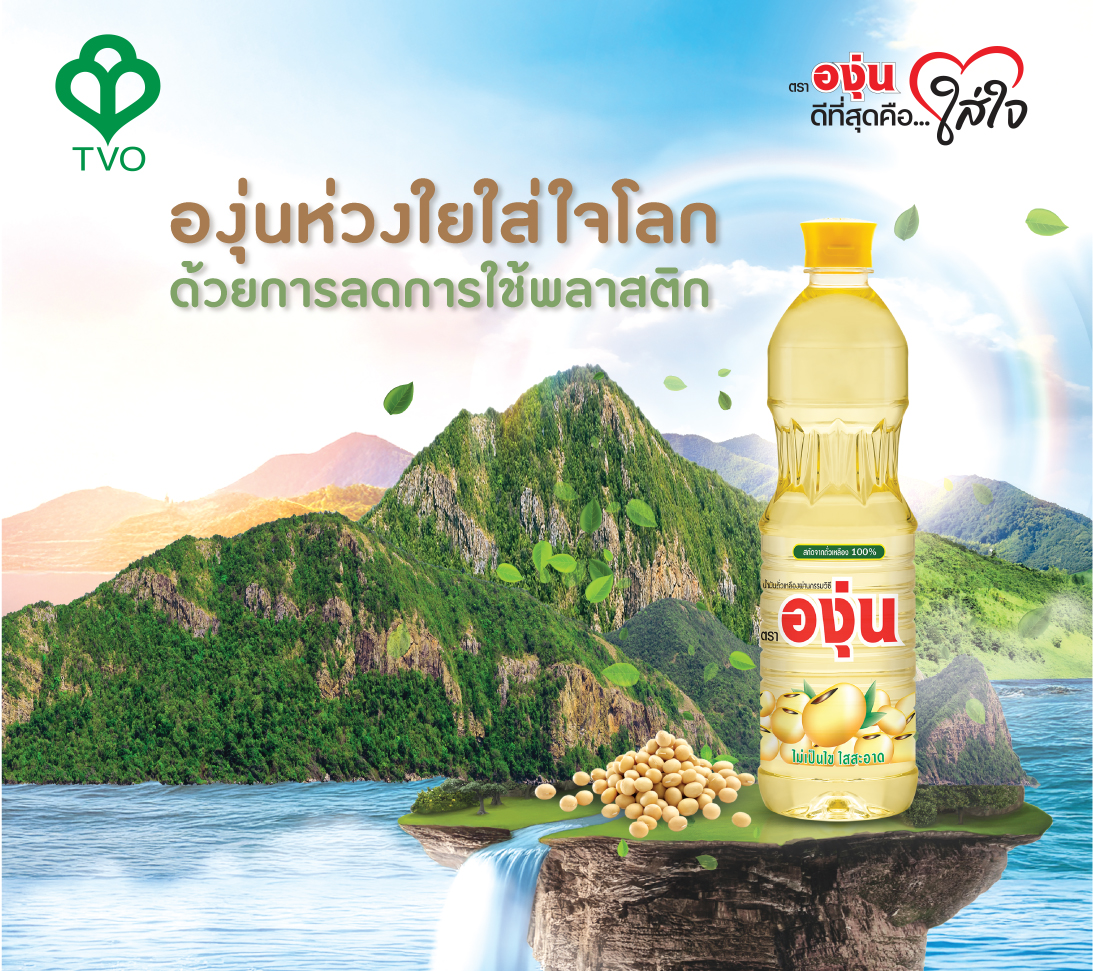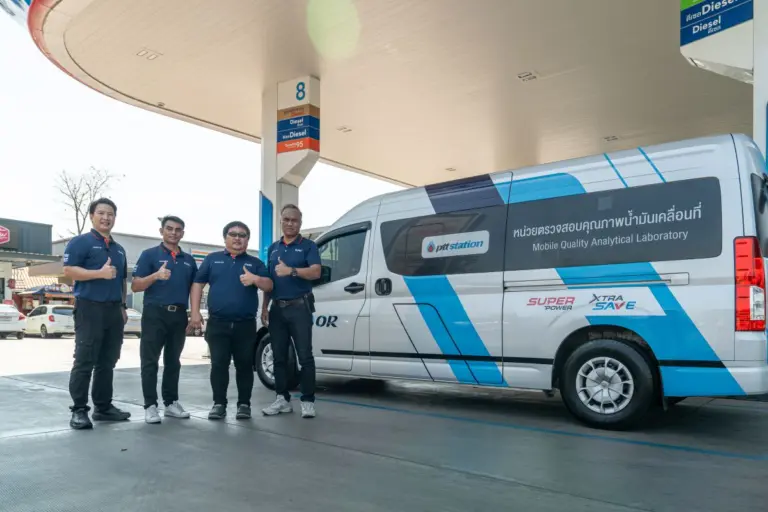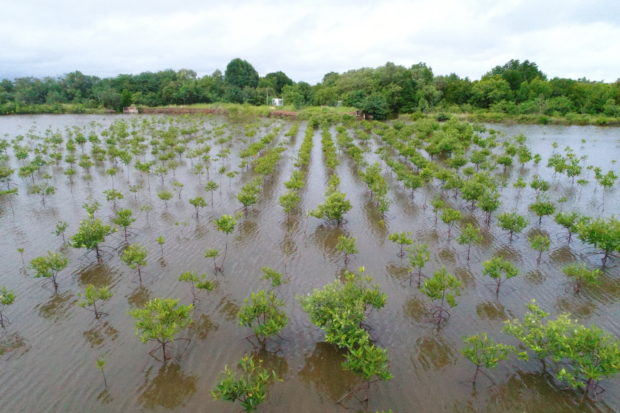
การฟื้นฟูป่าชายเลน
การฟื้นฟูทรัพยากรธรรมชาติและสิ่งแวดล้อมเป็น 1 ใน 12 นโยบายหลักที่รัฐบาลชุดปัจจุบันให้ความสำคัญ สอดรับยุทธศาสตร์ 20 ปี ของกระทรวงทรัพยากรธรรมชาติและสิ่งแวดล้อม ที่ตั้งเป้าหมายเพิ่มพื้นที่สีเขียวให้กับประเทศไทยเป็น 40% ของพื้นที่ประเทศ จากที่ปัจจุบันมีพื้นที่ป่า 32%
ภารกิจร่วมเพื่อเพิ่มพื้นที่สีเขียวให้กับประเทศไทย มีโมเดลความสำเร็จที่เกิดจากความร่วมมือระหว่างภาครัฐและเอกชน ที่สามารถนำมาเป็นต้นแบบของการอนุรักษ์ ฟื้นฟู และเพิ่มพื้นที่สีเขียวให้กับประเทศอย่างยั่งยืน
บริษัท เจริญโภคภัณฑ์อาหาร จำกัด (มหาชน) หรือ ซีพีเอฟ ในฐานะผู้นำธุรกิจเกษตรอุตสาหกรรมและอาหารครบวงจรที่ให้ความสำคัญกับการสร้างความมั่นคงทางอาหาร ตระหนักดีว่าทรัพยากรธรรมชาติเป็นต้นทางของแหล่งอาหารของมนุษย์ ซีพีเอฟจึงมุ่งมั่นดำเนินธุรกิจด้วยความรับผิดชอบต่อสังคม เศรษฐกิจ และสิ่งแวดล้อม ควบคู่ไปกับการมีส่วนร่วมรักษาสมดุลธรรมชาติป่าไม้ ทั้งป่าบกและทางทะเล ภายใต้แนวคิด “จากภูผาสู่ป่าชายเลน”
จากความมุ่งมั่นนำมาสู่ความร่วมมือแบบบูรณาการระหว่างภาครัฐ ภาคเอกชน ภาคประชาสังคม และชุมชน ต่อยอดเชื่อมโยงชุมชนกับผืนป่า จากความร่วมมือสู่การเรียนรู้ จากการเรียนรู้สู่การแบ่งปัน สร้างต้นแบบที่ดีและเครือข่ายที่เข้มแข็งในการอนุรักษ์และฟื้นฟูป่าไม้ของประเทศ
“วุฒิชัย สิทธิปรีดานันท์” รองกรรมการผู้จัดการอาวุโส ด้านความรับผิดชอบต่อสังคมและการพัฒนาอย่างยั่งยืน ซีพีเอฟ กล่าวว่า ธุรกิจอาหารเป็นธุรกิจที่เกี่ยวโยงกับสิ่งแวดล้อม และพึ่งพาทรัพยากรธรรมชาติเป็นวัตถุดิบในกระบวนการผลิต ซึ่งเกี่ยวกับความยั่งยืนของโลก เราจึงต้องตื่นตัว ตระหนักรู้ กระตุ้นและสร้างความเข้มแข็งในการขับเคลื่อนการอนุรักษ์สิ่งแวดล้อม ซึ่งมีผลต่อความมั่นคงทางอาหาร
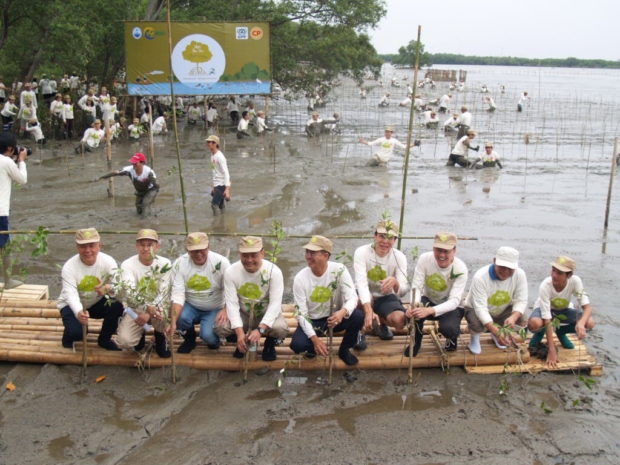
ภายใต้แนวคิด “จากภูผาสู่ป่าชายเลน” ซีพีเอฟบูรณาการความร่วมมือกับเครือข่ายพันธมิตรปลูกป่าบก ในโครงการ “ซีพีเอฟ รักษ์นิเวศ ลุ่มน้ำป่าสัก เขาพระยาเดินธง” และปลูกป่าชายเลนในโครงการ “ซีพีเอฟ ปลูก ปัน ป้อง ป่าชายเลน ”
“ซีพีเอฟ รักษ์นิเวศ ลุ่มน้ำป่าสัก เขาพระยาเดินธง” เป็นความร่วมมือโดยกรมป่าไม้ องค์การบริหารจัดการก๊าซเรือนกระจก (องค์การมหาชน) หรือ TGO สำนักงานพัฒนาเศรษฐกิจจากฐานชีวภาพ (องค์การมหาชน) หรือ BEDO และซีพีเอฟ ร่วมกันฟื้นฟูผืนป่าจากที่มีสภาพเป็นผืนดินแตกระแหง เป็นภูเขาหัวโล้น บนพื้นที่ 5,971 ไร่ที่ ต.พัฒนานิคม อ.พัฒนานิคม จ.ลพบุรี สู่การเป็นแหล่งเรียนรู้การฟื้นฟูป่าแบบมีส่วนร่วม เป็นแหล่งท่องเที่ยวของจังหวัดลพบุรี เป็นแหล่งพืชอาหาร สมุนไพร และพืชอาหาร เป็นป่าที่อุดมสมบูรณ์หล่อเลี้ยงชีวิตของชุมชน เนื่องจากป่าต้นน้ำลุ่มน้ำป่าสักเป็นแหล่งน้ำสำคัญสำหรับการเกษตรและอุตสาหกรรมของจังหวัดลพบุรี เลย เพชรบูรณ์ สระบุรี และพระนครศรีอยุธยา
จากผืนป่าเขาหัวโล้นที่สัตว์น้อยสัตว์ใหญ่ไม่สามารถมีชีวิตรอด เพราะไม่มีแหล่งอาหารในพื้นที่ ปัจจุบันกลายเป็นป่าที่สำรวจพบสัตว์เลี้ยงลูกด้วยนม 9 ชนิด นก 119 ชนิด สัตว์เลื้อยคลาน 20 ชนิด และสัตว์สะเทินน้ำสะเทินบก 15 ชนิด นอกจากนี้ ต้นไม้ที่ปลูกในพื้นที่เขาพระยาเดินธงยังช่วยกักเก็บคาร์บอนได้ 38,108 ตันคาร์บอนไดออกไซด์เทียบเท่า
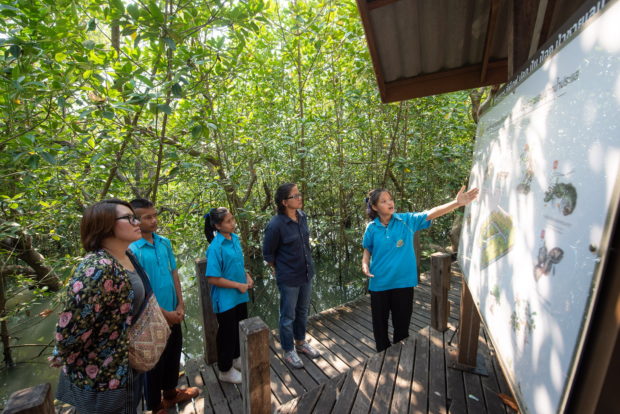
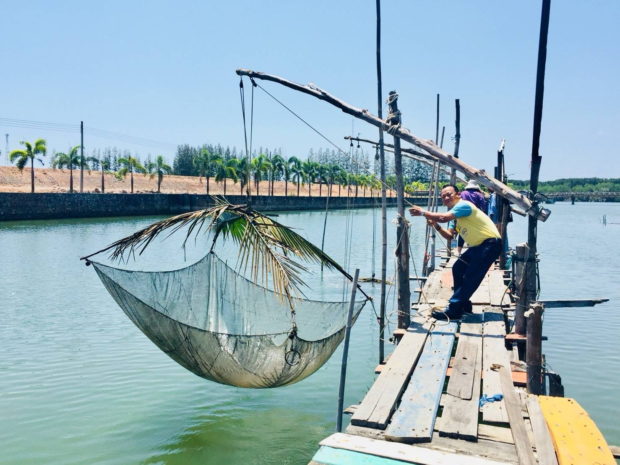
“ชาตรี รักษาแผน” ผู้อำนวยการส่วนอำนวยการ สำนักส่งเสริมการปลูกป่า กรมป่าไม้ กล่าวว่า แม้ว่าภาครัฐจะมีการดำเนินการอย่างเต็มที่ในการฟื้นฟูป่าไม้ แต่ยังมีข้อจำกัดเรื่องงบประมาณ จึงต้องอาศัยความร่วมมือของภาคเอกชน โดยเฉพาะบริษัทขนาดใหญ่ ร่วมฟื้นฟูและอนุรักษ์ป่าไม้ ช่วยให้ป่าคืนสู่สภาพสมบูรณ์เร็วขึ้น ตามยุทธศาสตร์ของรัฐบาลที่มีเป้าหมายเพิ่มพื้นที่ป่าไม้ของประเทศ
นอกจากผืนป่าบก ซีพีเอฟยังได้ร่วมดูแลระบบนิเวศป่าชายเลน ซึ่งเป็นพื้นฐานของการสร้างแหล่งอาหารที่มั่นคง โดยร่วมกับกรมทรัพยากรทางทะเลและชายฝั่ง (ทช.) ดำเนินโครงการ “ซีพีเอฟ ปลูก ปัน ป้อง ป่าชายเลน” โฟกัสพื้นที่ยุทธศาสตร์ป่าชายเลน 5 จังหวัด คือ ระยอง สมุทรสาคร พังงา สงขลา และชุมพร เป็นพื้นที่ในการฟื้นฟูและปลูกป่าใหม่รวม 2,388 ไร่ เริ่มตั้งแต่กระบวนการ
- “ปลูก” คือ ปลูกจิตสำนึกอนุรักษ์ ส่งเสริมการเข้าถึงความรู้ ควบคู่ไปกับการปลูกป่าชายเลน
- “ปัน” คือ แบ่งปัน แลกเปลี่ยนความรู้ และประสบการณ์ด้านการปลูกป่า ดูแลการจัดการแบบมีส่วนร่วม
- “ป้อง” คือ ปกป้องผืนป่าชายเลนด้วยความร่วมมือของเครือข่ายและภาคประชาสังคม
นอกจากฝืนป่าชายเลนที่ได้รับการฟื้นฟูแล้ว ปัจจุบันมีการพัฒนาสู่การเป็นศูนย์เรียนรู้ป่าชายเลน และเส้นทางท่องเที่ยววิถีชุมชน ที่สร้างอาชีพและสร้างรายได้เสริมให้แก่คนในพื้นที่
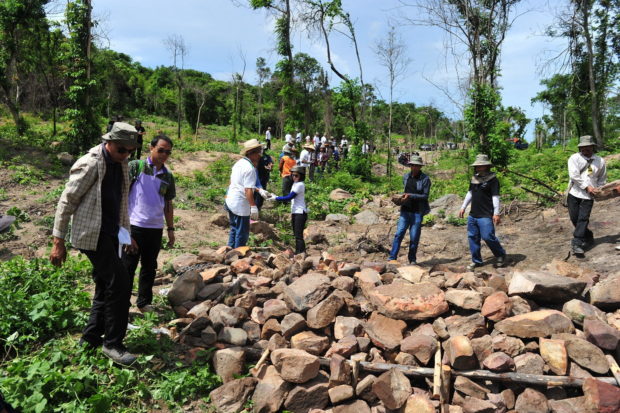
การฟื้นฟูผืนป่า
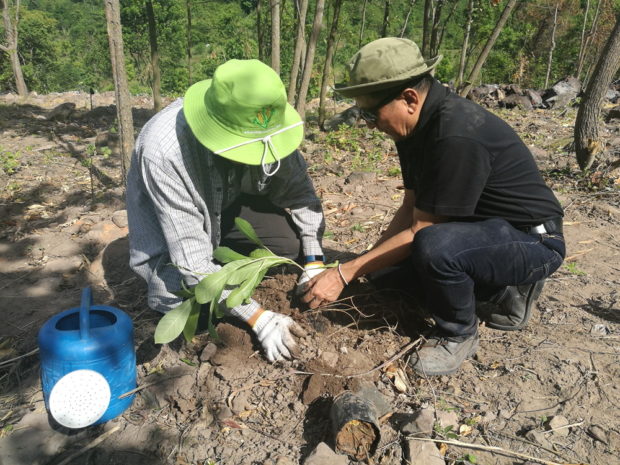
ซีพีเอฟให้ความสำคัญกับการดูแลสิ่งแวดล้อมและใช้ทรัพยากรให้เกิดประสิทธิภาพสูงสุด โดยกำหนดให้เรื่องของ “ดิน น้ำ ป่า คงอยู่” เป็นหนึ่งใน 3 เสาหลัก “อาหารมั่นคง สังคมพึ่งตน ดินน้ำป่าคงอยู่” ทิศทางกลยุทธ์ความรับผิดชอบต่อสังคมสู่ความยั่งยืน
นอกจากนี้ ยังได้ผสานเป้าหมายการพัฒนาที่ยั่งยืนขององค์การสหประชาชาติ (Sustainable Development Goals: SDGs) เข้ากับการดำเนินงานของบริษัท ยกตัวอย่างโครงการอนุรักษ์และฟื้นฟูป่าที่สอดคล้องกับ SDGs ข้อ 13 คือ การรับมือการเปลี่ยนแปลงสภาพภูมิอากาศ, ข้อ 14 การใช้ประโยชน์จากมหาสมุทรและทรัพยากรทางทะเล, ข้อ 15 การใช้ประโยชน์จากระบบนิเวศทางบก, ข้อ 17 ความร่วมมือเพื่อการพัฒนาที่ยั่งยืน
การถอดบทเรียนโมเดลความสำเร็จของโครงการปลูกป่าของซีพีเอฟ นอกจากความร่วมมือแล้ว ความต่อเนื่องของโครงการแล้ว ยังมาจากการกำหนดเป้าหมายในระยะยาว ที่มองถึงเรื่องการสร้างงาน สร้างอาชีพให้แก่คนในพื้นที่ เพื่อให้ชุมชนอยู่ร่วมกับป่าอย่างยั่งยืน
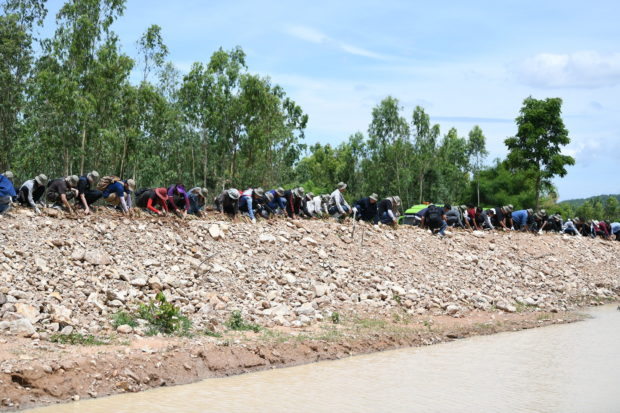
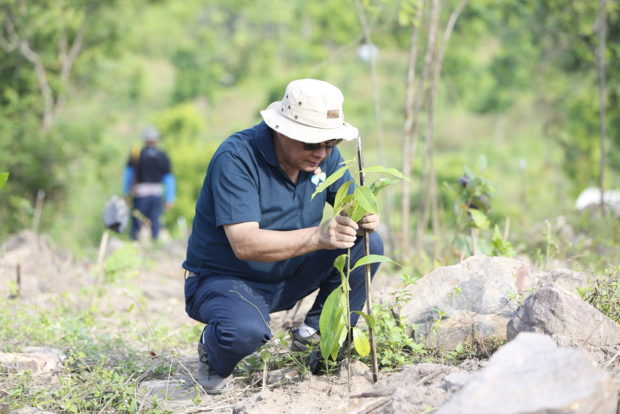
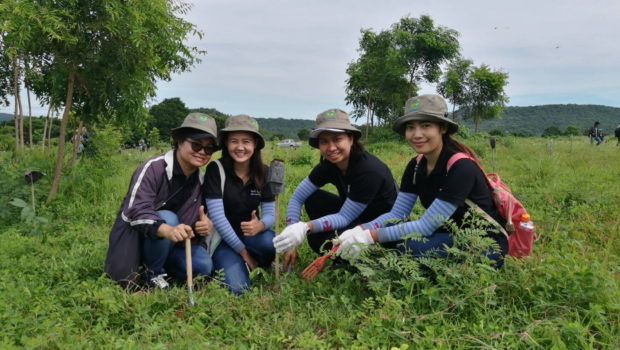
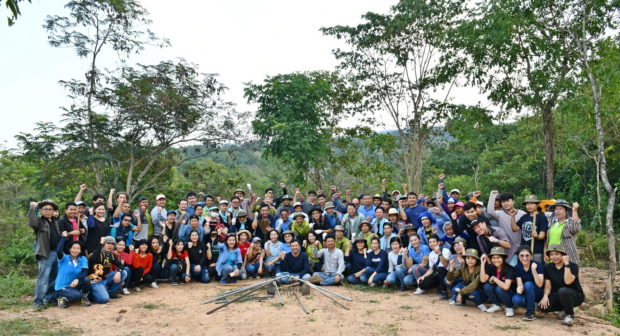
…..
From Mountain to Mangrove: Giving a new life to ecological system for food security
Climate crisis, decreasing in natural resources, and the severity of environmental pollutants is posing both direct and indirect impacts on all sectors, especially the agro-industrial and food businesses.
These impacts could manifest in the forms of raw material shortage or in the volatility of raw material prices, as well as disruption of production processes owing to water scarce conditions that occur due to drought or degraded water sources, and flooding. Subsequently, collaboration of all sectors is needed in order to set proactive measures to maintain food security.
To take part in this global agenda, Charoen Pokphand Foods (CP Foods), as a leading agro-industrial company, has initiated a sustainability concept so-called “From Mountain to Mangrove” to operate its business on the basis of reducing environmental impacts, and promoting the conservation of natural resources throughout the value chain.
This concept also serves the government’s agenda and the 20-Year National Strategy Framework under Ministry of Natural Resources and Environment to raise the percentage of forested area from 32% to at least 40%.
Mr. Wuthichai Sithipreedanant, senior vice president for Corporate Social Responsibility and Sustainable Development of CP Foods, said the food industry is closely linked to ecological system. It needs natural resources for the operation and, therefore, it is vital for the agricultural and food industry to preserve and restore natural resources that ensure food security.
“From Mountain to Mangrove” emphasizes on the partnership between the company, the government, and the civil society to conserve and restore green areas. Moreover, it also draws to build a sustainable coexistence of community and nature.
Under the concept, CP Foods has initiated two projects including CPF Rak Ni-Ves Pasak Watershed, Khao Phraya Doen Tong Project and CPF Grow-Share-Protect Mangrove Forestation Project. It will also draw a collaboration with its partners to turn degraded forest to green areas.
The company, in cooperation with Royal Forest Department, Thailand Greenhouse Gas Management Organization (Public Organization), Biodiversity-Based Economy Development Office (Public Organization) and civil society groups, have jointly managed “the Rak Ni-Ves Project at Pasak Watershed – Khao Phya Doen Tong” to conserve and restore the watershed forest, covering the area of 5,971 Rais.
The project also plans to create a learning centre of forestation as well as promoting ecotourism in Lopburi. The communities surrounding these forest areas had also received benefits from plants,ecosystem products that came with the restored forests.
According to Kasetsart University study, the forest is now a habitat of nine species of mammals, 119 species of birds, 20 species of reptiles and 15 species of amphibians. In addition, this abundant forest can absorb 38,108 tons CO2e.
Mr. Chatree Raksaphaen, the director of Reforest Action Promotion Office, The Royal Forest Department, told that the government resources on reforestation are limited. Therefore, the public-private collaboration is needed to accelerate the plan.
Started in 2014, the CPF Grow-Share-Protect Mangrove Forestation Project began in 2014 has combined dedication and efforts of the company, the Department of Marine and Coastal Resources, and the Biodiversity-Based Economy Development Office (Public Organization), along with various local organizations and communities.
The Project aimed to increase the mangrove forest areas and conserved mangrove forests in five strategic locations across the country and nearby the strategic area totaling 2,388 Rai, in Samut Sakhon, Rayong, Chumphon, Phang Nga, and Songkhla provinces. A mangrove learning center was also established to share knowledge about mangrove ecosystems with the public.
CP Foods has driven its business on the principle of Corporate Social Responsibility towards Sustainability under the three pillars – “Food Security”, “Self-Sufficiency Society”, and “Balance of Nature” which followed the beacon of UN Global Compact and the United Nations Sustainability Development Goals (SDGs).
It committed to support 10 of 17 SDGs, applying its knowledge, capability and expertise to support the growth and sustainable environment.


